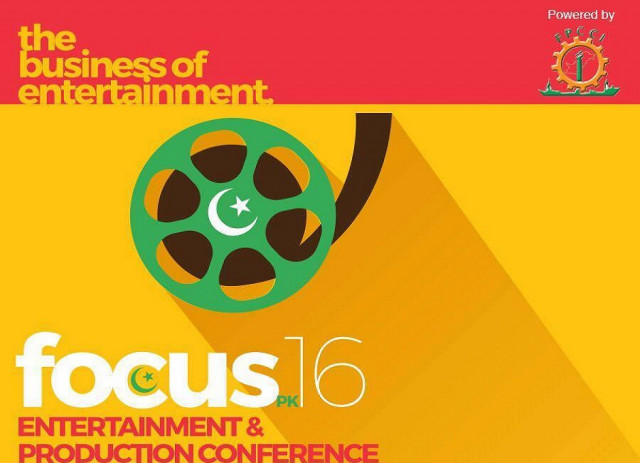Stars galore : FocusPK16 seeks to reshape future of entertainment industry
Two-day conference seeks to help industry reflect and reassess its position

Two-day conference seeks to help industry reflect and reassess its position. PHOTO: FOCUSPK16/FACEBOOK
Different stakeholders from the industry gathered to identify the areas where they went wrong and how to correct them for a brighter future.
The inauguration ceremony was attended by federal information minister Maryam Aurangzeb, Unilever chairperson Shazia Syed and actress Atiqa Odho.
After inaugural speeches by Odho and Aurangzeb, scriptwriter and satirist Anwar Maqsood was honuored with a shield for his contributions to the media, followed by a performance by the Sachal Band.
FocusPk16: Time to take showbiz seriously
Subsequently, sessions on the different aspects of the industry were held, which included scriptwriting, theatre, censorship policies and marketing of ideas. One of the first sessions was about the ratings game in Pakistan. The panelists, which included Pakistan Advertisers Society (PAS) awards committee chairperson Aly Mustansir, GroupM CEO Fouad Husain and MEC general manager Ateeq Sial, highlighted the inauthenticity of the television ratings system. The stakeholders argued whether the system was a hindrance in the way of quality programming.
However, the fact remains that 400 to 800 ratings boxes have been installed and that too in urban areas. It raises the question whether they could be trusted to judge what the entire country’s audience wants. Sial remarked ‘ratings are like a report card’, while Mustansir argued that ‘ratings don’t dictate but rather determine’. However, the egg-and-chicken situation of interdependency of ratings, audience, content producers and broadcasters continued. Husain summed up the entire situation perfectly when he said, “We don’t want to accept any issues anymore”.
In another session titled ‘Parallel Cinema vs Commercial Cinema’, filmmakers Syed Noor, Sarmad Khoosat and Iram Parveen Bilal, actors Salman Shahid and Maria Wasti, distributors Nadeem Mandviwalla and Kamran Yar Khan and producer Jerjees Seja spoke about the comparison.
'First ever' Pakistani film-festival to be held in New York
The discussion started with an argument of nomenclature - whether to call it parallel or independent cinema versus commercial or mainstream cinema. However, moving beyond that, the panelists talked about the need for one cinema to support another.
Without commercial cinema, there would not be enough finances to produce independent films. One difference, they argued, could be the difference of budget, resulting in better storytelling and less reliance on star power.
In an interesting back-and-forth argument, Khoosat argued there are only two kinds of films: “Brave or cowardly; if commercial films are considered safe, it’s cowardly. If Paranormal Activity earns a lot of money, no one questions whether it was an indie film or a mainstream, or whether it was shot on a phone”.
Published in The Express Tribune, December 4th, 2016.



















COMMENTS
Comments are moderated and generally will be posted if they are on-topic and not abusive.
For more information, please see our Comments FAQ